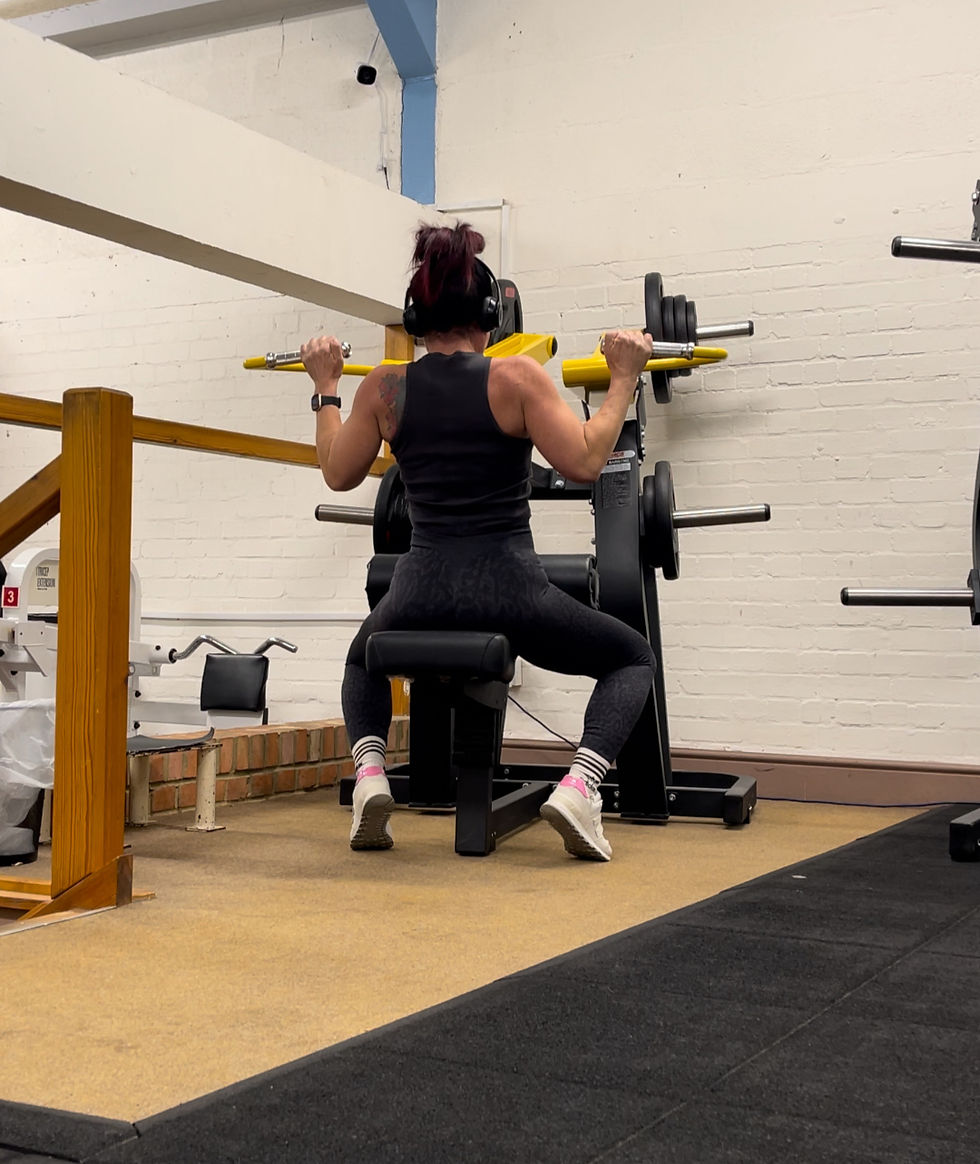The Power of Creatine;
- jill laws

- Jun 15, 2024
- 3 min read
Updated: Jul 12, 2024

The Power of Creatine; Boosting Energy, Performance, and Bone Health
Creatine is a fascinating compound that’s gaining popularity in fitness and health circles. Naturally found in our muscles, brain, and gut, creatine is made up of three amino acids: L-arginine, glycine, and L-methionine. Its primary role? Supplying energy to our muscles during those heavy lifts and high-intensity workouts.
Understanding Creatine and Its Sources
Our bodies naturally produce a small amount of creatine daily—just under 1 gram, to be precise—through the liver's metabolism of digested protein. Despite this, many people turn to creatine supplements, particularly creatine monohydrate, which is the most researched and widely used form. Why? Because while creatine is present in many foods, especially animal products like red meat and fish, the amounts are relatively low compared to what you get from supplements.
What Does Creatine Do?
Simply put, creatine acts as a vital energy booster for your muscles during intense physical activities. To get into the nitty-gritty, let’s talk about how our body generates energy.
At the cellular level, adenosine triphosphate (ATP) serves as the energy currency, fueling high-intensity activities and explosive movements. Think of ATP as the main fuel for your demanding gym sessions. The problem is that our ATP supply is pretty limited. That’s where creatine comes in, playing a crucial role in recycling ATP and providing a steady supply of energy.
When you supplement with creatine, you increase your muscle’s creatine stores, which accelerates the recycling of ATP. This means you have more energy on tap for those rigorous workouts. More energy leads to better performance, helping your body to adapt and improve—building strength, power, and muscle mass. These improvements are key for staying active and leading a healthier, more dynamic life.
Who is Creatine Suitable For?
Creatine is a fantastic fit for most adults who exercise regularly. Research indicates it’s especially beneficial for women engaged in high-intensity workouts of short duration or those involving repeated sets with brief rest periods. So, whether you’re into strength training with dumbbells, weightlifting, treadmill sprints, or HIIT workouts, creatine can help you get the most out of your efforts.
But there's more good news: creatine is particularly beneficial for women over 40 and those going through menopause. Studies show that it can help prevent age-related muscle and bone loss, boost strength, and combat inflammation and oxidative stress. This makes creatine a valuable ally in maintaining your health and vitality during this stage of life. Creatine also has the potential to improve mood and cognitive function.
Stronger Bones
Women can lose up to 2% of their bone density each year during perimenopause and the two years following menopause due to declining estrogen levels. But here’s some good news: creatine may help counteract this. Research suggests that supplementing with creatine could support bone density by boosting metabolic activity and aiding bone cell development. This is crucial for reducing the risk of osteoporosis, a condition that’s more common in postmenopausal women.
Creatine Can Improve Exercise Performance
Creatine is primarily known for enhancing exercise performance by boosting the body’s ability to produce ATP, the main energy source for high-intensity workouts. Typically, ATP levels drop after about 10 seconds of intense exercise, but creatine supplements help maintain ATP levels longer, allowing for sustained performance.
Even if you’re not aiming for peak performance, this improvement has practical benefits. Stronger muscles and bones lead to more muscle mass, which increases your metabolic rate. A higher metabolic rate makes it easier to maintain a healthy weight and reduce the risk of health issues like heart disease and diabetes.
Conclusion
In summary, creatine offers a range of benefits that make it a valuable supplement for many people, especially women. From boosting exercise performance and providing a steady supply of energy to supporting bone health and helping to manage weight, creatine can play a crucial role in your health and fitness journey. Whether you're a seasoned athlete or just looking to improve your overall well-being, creatine could be a game-changer for you. So why not give it a try and see how it can help you achieve your health and fitness goals?







Comments